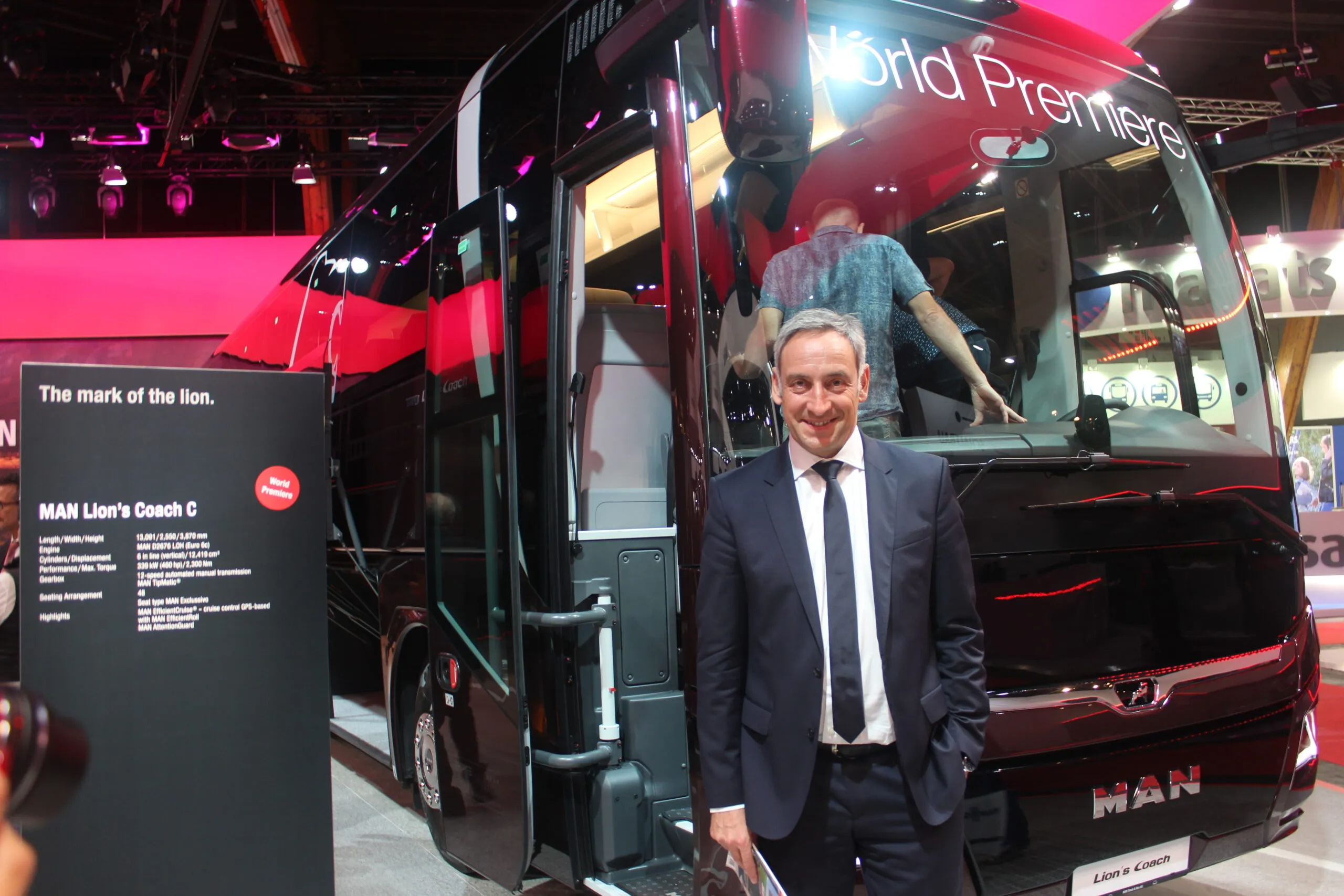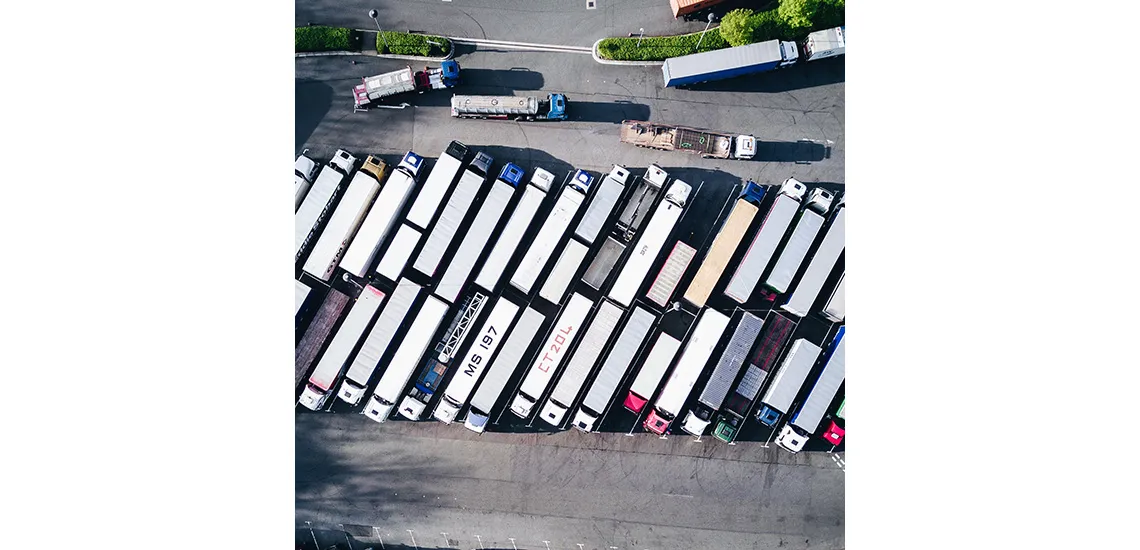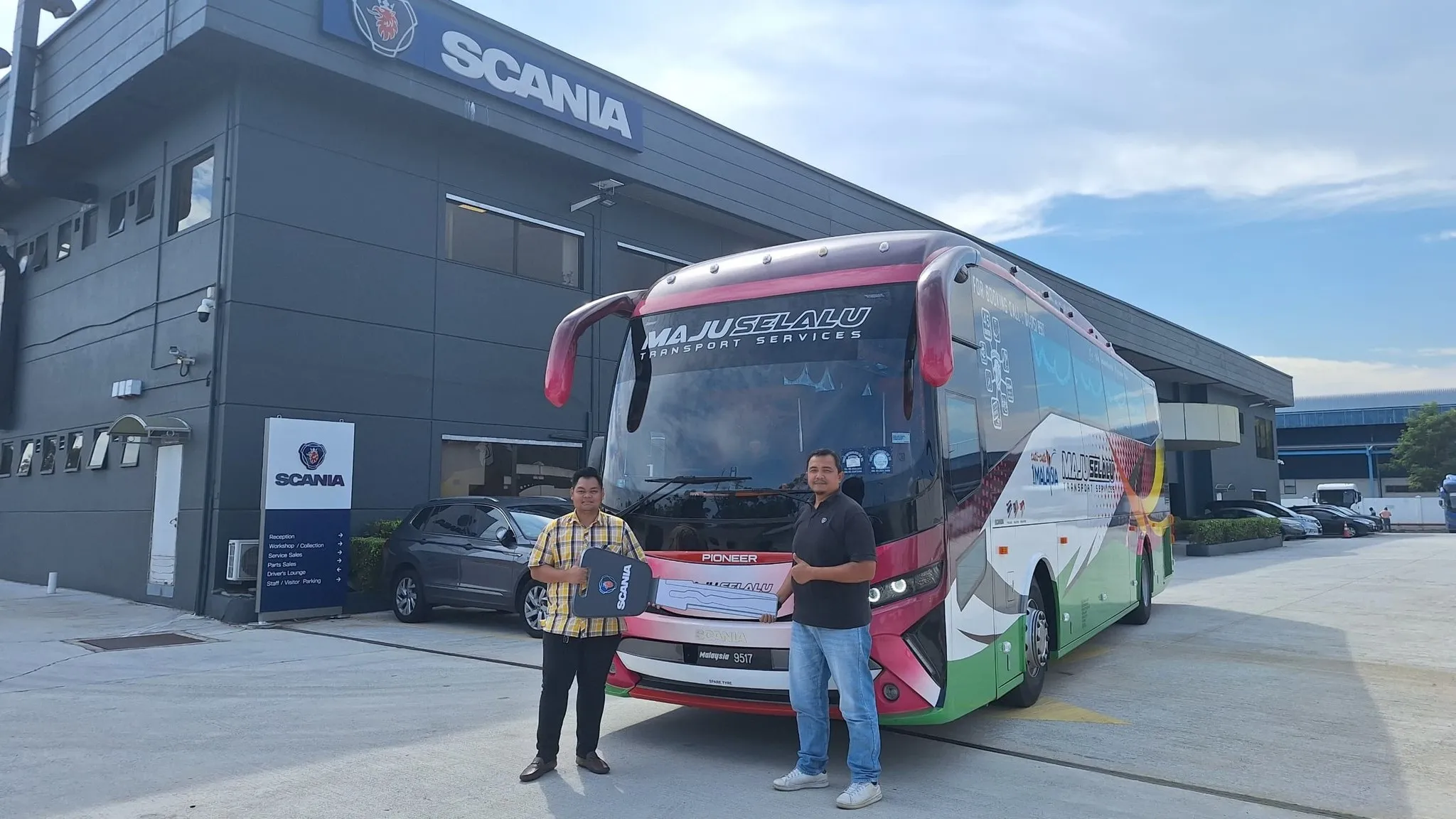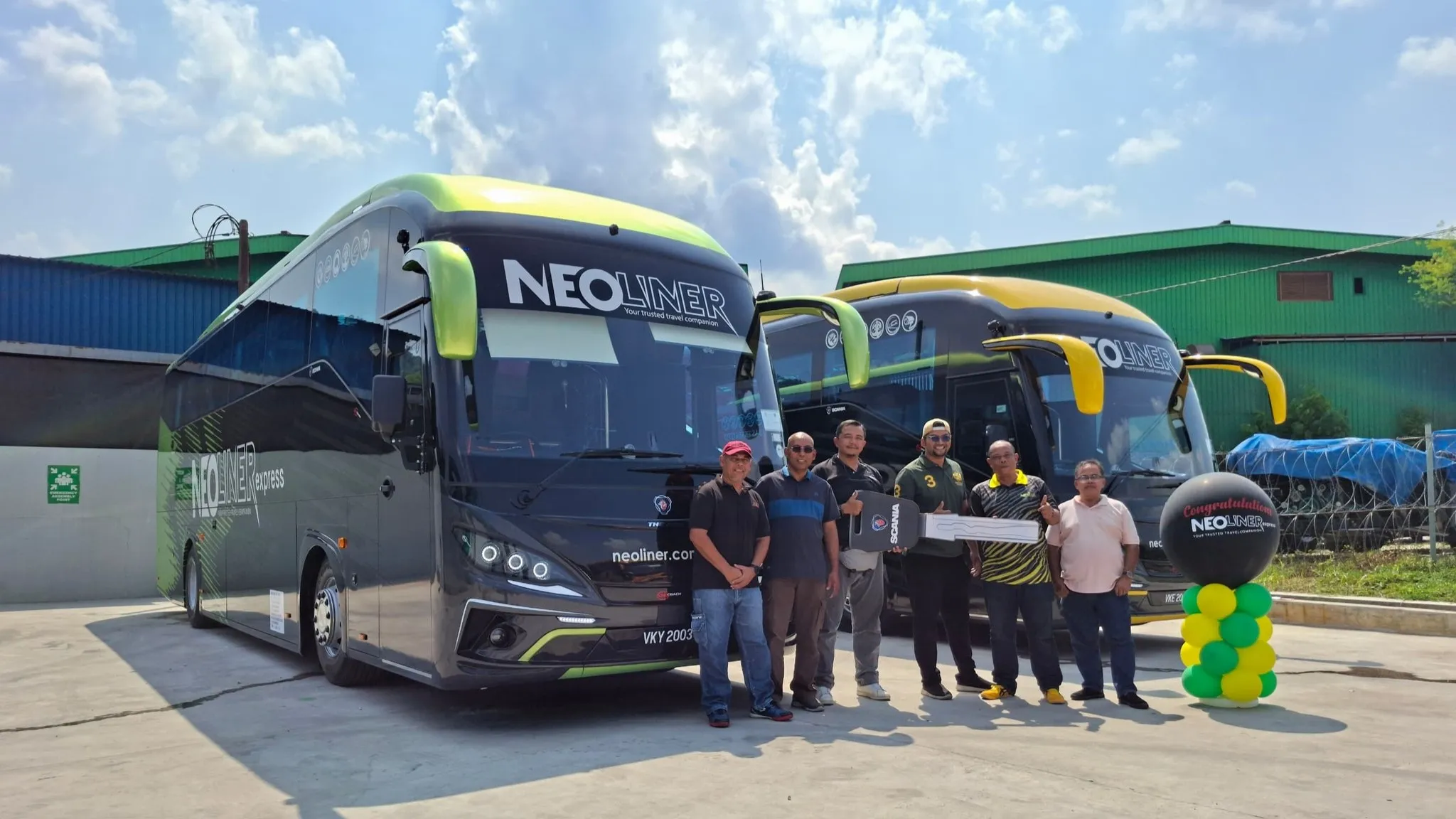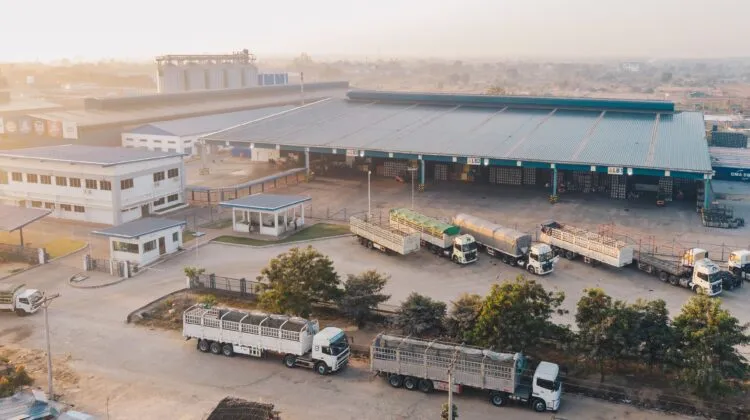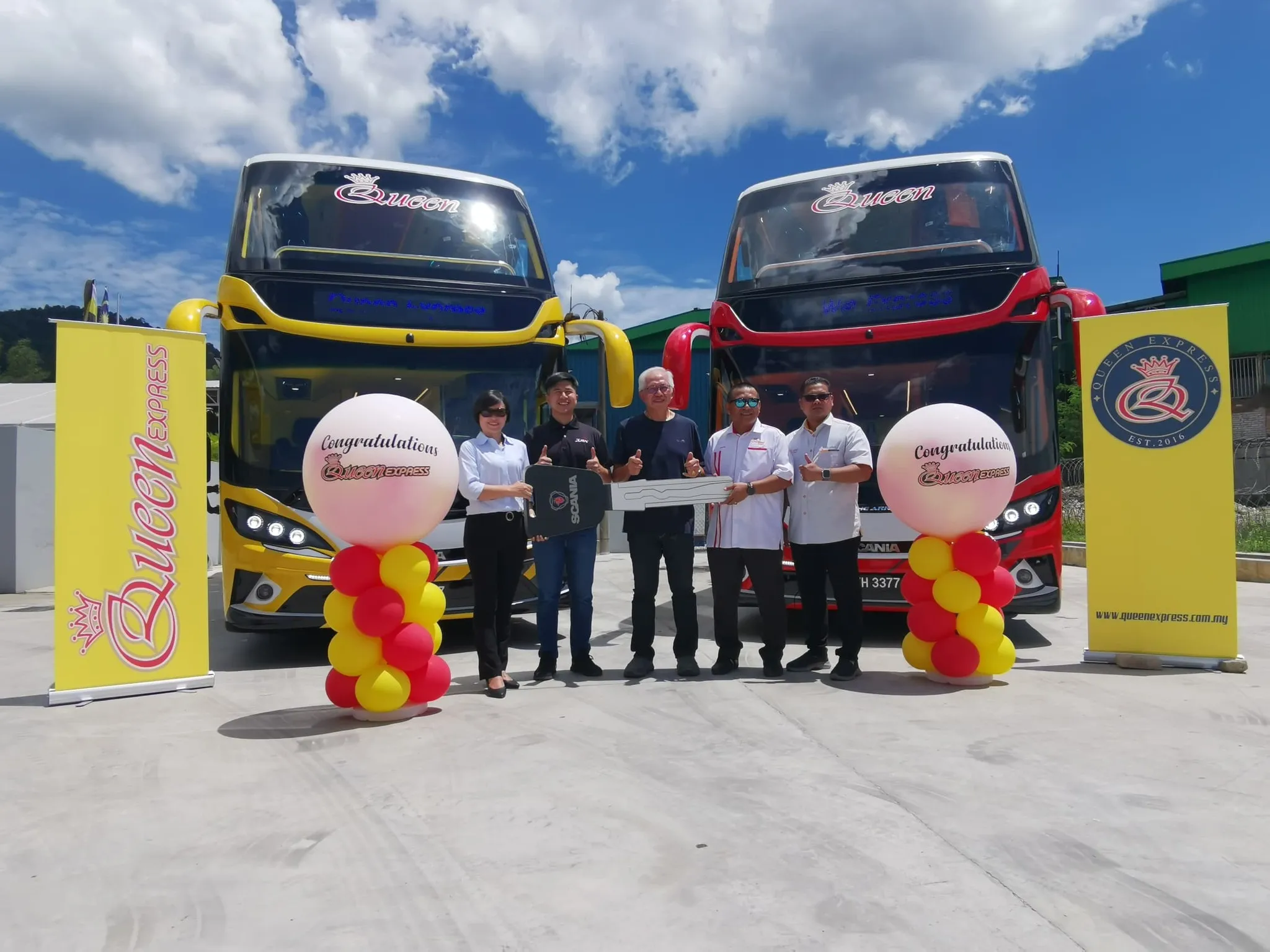A company that builds a culture of innovation is on the path of growth, and MAN is certainly such a company.
MAN’s Innovation and Sales Journey
At a glance of its booth in Hall 2 at the Busworld Kortrijk 2017, one could see how innovations took place and were at work in MAN. Not only from the five buses and the latest Euro 6 engine that the company displayed, but also the comprehensive consultancy services regarding alternative power sources, financing and service. In short, it was the innovation that took centre stage. This was further confirmed when Truck & Bus News talked to Rudi Kuchta, Senior Vice President, Product & Sales Bus and Heiko Haumer, Vice President, Head of Sales Bus Region at the show.
“This year, the main highlight is the official world premiere for our new MAN Lion’s Coach that features a more rigid skeleton, new driveline and new MAN design language. A higher level of economy is achieved through the optimised moving-off and gear-shift strategy together with several assistance systems and improvement in maintenance as well as 20 per cent improvement in aerodynamics. We also showcase our next level of Euro 6 engine with 10 per cent reduction in fuel consumption. The production has started and it is available from now on,” Kuchta said.
Equally important, he continued, was the Neoplan Skyliner. “The world’s first double- decker touring coach – Neoplan Skyliner – was rolled out in 1967 and today we are celebrating its 50th anniversary. The seventh generation has been continuing the success story since 2012, with 5,000 units sold throughout the world to date.”
Alongside of the display of the Neoplan Skyliner were the MAN Lion’s City Hybrid and Neoplan Tourliner.
“Next year, we will launch our new range of city buses for diesel, gas and electric mobility in the IAA Commercial Vehicles show. Apart from new bus models that are not launched so often, it is an important launch for us as it is in conjunction with the celebration of our 75 years of experience in gas buses,” he added
Besides the extensive range of services for buses and coaches, Kutcha stressed that the company’s transportation solutions were tailored to meet individual needs.
The products displayed at the show were all compliant with Euro 6. However, he said the company had products that were also compliant with Euro 3, 4 and 5. For emerging markets or countries that imposed higher import duty for complete bus, it offered chassis solutions.
Bus Modification Centre
“We have centralised our production sites. Currently, we have two production sites; one for coaches in Turkey and another in Poland for city buses. In Germany, we have a small Bus Modification Centre (BMC) that offers a comprehensive range of tailor-made equipment options for bus interior, inclusive seat clusters, on-board kitchen, bathroom and toilet, special lighting design, storage variations and on-board entertainment.”
Among the major bus manufacturers in the world, only MAN has its own BMC, which shows the high level of emphasis the company places on the ‘personal touch’ approach in meeting the customers’ specific requirements.
“The BMC is mainly to support our own bus brands and vans. However, BMC is also available to provide modification services for other brands as well,” he added.
In line with the company’s focus that is set firmly on the future and creating real added value for the business of its customers, Kutcha said the RIO operating system was developed and launched in IAA Commercial Vehicles 2016.
RIO is said to bundle digital solutions for the transportation and logistics industry that encompasses vehicles manufactured by competitors as well as a variety of telematics platforms. Feeds into the system come from trucks, trailers, drivers and logistics centres and are pooled with real time traffic, weather and navigation data to provide users with concrete recommendations regarding routes, timetables, loading schedules and a host of other functions.
“The market response for RIO is encouraging. Currently, we are in the process of defining what sort of data we want as well as working closely with customers to find out the optimum benefits for them as each customer has different requirements.”
He pointed out that the RIO box was now included in all brand new MAN Euro 6 standard truck series in Europe. The retrofit option is available for all other trucks and brands as long as they are equipped with a standard FMS-interface in Europe. RIO would also be available for buses in the future.
“In line with electric mobility, we have set up a new department called transport solutions. There will be another set of data that need to be analysed such as the optimum battery loading and management,” he added.
Sales up 30 per cent
Talking about sales performance, he revealed that MAN’s global sales were up 30 per cent in the last 3 years, which was in line with the company’s growth strategy.
“Europe is our main market and our sales in the other parts of the world are increasing. Our chassis business in South Africa accounts for nearly 40 per cent of the market. Morocco is worth mentioning as they started buying complete Tourliner bus from us compared to only chassis in the past. Next year, we would like to increase our sales in Hong Kong, Philippines, Malaysia and Indonesia,” said Haumer.
A more detailed breakdown from Kutcha revealed that the company had a stronghold in the home market, Germany. “We are the leader in Spain, followed by France, Italy, Eastern Europe such as the Baltic countries. We delivered 140 buses to Tbilisi, Georgia, signed a deal with Saudi Arabia for the city of Rio for 240 complete city buses from Holland, and will be delivering 400 buses to Tunisia in the next 3 years. We are quite successful and a market leader in South Africa as we have a factory there. As for Southeast Asia, Singapore is still our most important market with thousands of land buses; of course that will depend on tenders. The Singapore Gourmet Bus based on the MAN A69 chassis that offers space for pleasurable city sightseeing while enjoying culinary delights is very successful. Hong Kong is also important.”
The markets that MAN would like to develop, Kutcha said, would be Mexico, South America, Russia and Central Africa where there was a demand for high quality buses. Also in the pipeline was India, where the company was currently looking at products that were suitable to penetrate the market.
“We are also looking at Australia and New Zealand,” added Haumer.
Kutcha was pleased to announce that the company was meeting its sales targets, with a 5-per cent increase in volume, from last year 6,126 buses to this year’s 6,400.
Defined Strategy for each market
In marketing strategy, Haumer confirmed that the company had a defined strategy for each market. He said it had a complete range of products, for instance, city buses from small to large with several heights and specification to meet the different market requirements. “Even in a small area in Europe, we need several products for the respective markets. Outside Europe, as far as local contents are concerned, our first approach is to bring all the parts from Europe. We will localise the contents as much as we can when we have developed up to a certain level.”
For emerging markets in particular, Haumer continued, MAN could be a strong partner due to product localisation and the company could bring new technologies and knowledge to these markets.
As to whether MAN faced competition from the Chinese brands, Kutcha said it was not easy for the Chinese brands to penetrate the European market. Though they had improved a lot in quality and image, there was still a gap in technology, especially in engines. Chinese manufacturers were quite experienced in electric mobility.
“We have to see how they enter the market. The Chinese manufacturers have a big advantage because of the big subvention from the state and we have to be on our own. For us, entering the China market is difficult. We have 70 body builders worldwide and we focus on 5 to 10 body builders. For instance, we work very closely with the Chinese body builder King Long in Hong Kong and Gemilang in Malaysia for our chassis business. Thus, for the emerging market, the strategy is to find the synergy and work together.”
Haumer added that Chinese brands were a challenge for the company. However, he said the bus market itself was big enough and China was a potential market. He revealed that MAN was working closely with a Chinese body builder and was looking at extending the partnership with this company. He added that hopefully in the next 6 to 7 months, MAN could announce the details.
Greater Potential Growth in city and intercity bus segment
Which bus segment has the greater potential for growth? Haumer replied that the city and intercity bus segments would experience rapid and significant growth due to the fast development of cities across the world. In emerging economies, rapid urbanisation led to unprecedented private motorisation but there was a growing recognition that investing in urban transport could help mitigate the negative impacts of motorisation.
“The trend is moving towards bigger buses, from 12-metre buses in the past to 18-metre or double decker buses. Also in demand are articulated buses with higher capacity, faster loading/unloading as well as more space for passengers and wheelchairs compared to conventional buses,” he continued.
Comparing bus travel with budget flights, Huamer said a coach ride was more exciting and efficient for certain destinations such as those that were less than 1,000km away. Furthermore, today’s coach operators were more willing to invest in quality and ideas.
To improve the bus and coach passenger experience, Kutcha said safety and comfort in travelling was important. For example, the electronic suspension system that adapted to the speed to ensure comfort and the security system such as automated brake system and GPS to reduce the stress on the driver. Quiet, clean, bigger windows for a nice view, good ventilation and air-condition system to ensure fresh air, higher roof, lighting to create a welcoming atmosphere, less emission and the USB charging port and Wi-Fi connection would give buses the much needed boost.
“Another important aspect is image. We need to change the perception that only those with no other choice – the ‘losers’ of society – ride the bus. The best way to banish bus stigma is to make the service more attractive; of course this includes the involvement of authorities and investment,” Kutcha added.
Future Plan
Moving forward, Huamer said the company was looking at how to stabilise its market share. He pointed out that MAN would like to continue its growth in the global market, with a slight sales improvement in the European market and continuing its emphasis in the Asian market.
“We only offer buses in the past but today, we are a total solutions provider. Besides products, we offer financing, insurance, complete after-sales service, repair and maintenance packages, digitalisation whereby we provide our customer the relevant data that they require such as fuel consumption, vehicle tracking, service reminders, just to name a few.”
Kutcha also revealed that for the electric bus, the company’s focus was on the city bus. Its first electric 12-metre bus was expected to run in the city in 2019 and by the end of 2019, the company would roll out a series of electric buses. Although there were more talks on electric mobility, he said Euro 6-compliant vehicles had good emissions and he still believed that diesel had a vibrant future.
“The global bus market will grow slightly at an average rate of 3 per cent up to 2020 after the Brazil’s crisis. Russia and India will grow a bit faster; Europe and China will grow stably. The market will be more or less stable with changes in the respective segments; that in the premium market being slightly higher and the lower market is probably lower. In Europe, 2020 will be a tipping point for electric mobility with many tenders from the big cities,” he concluded.

